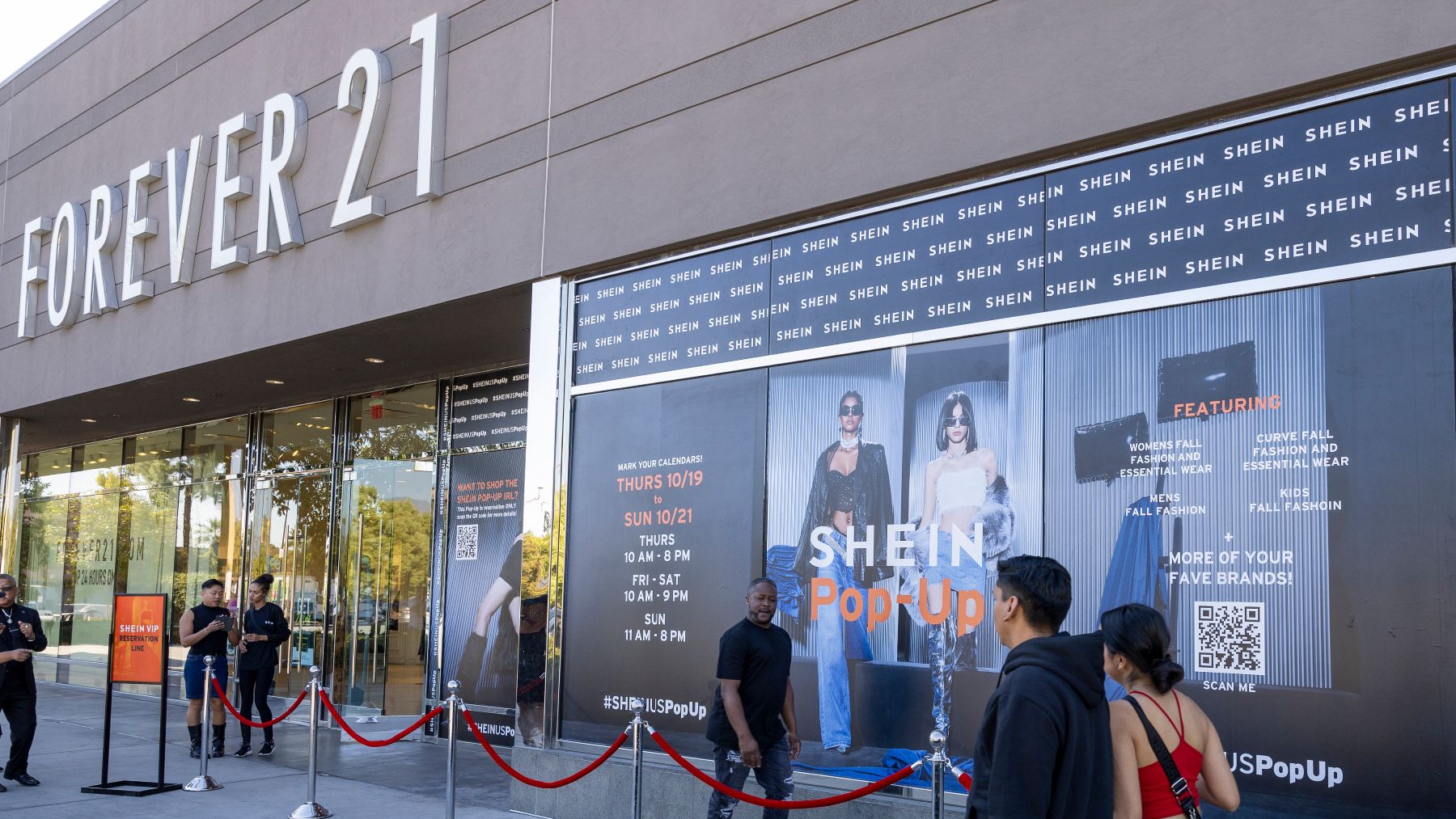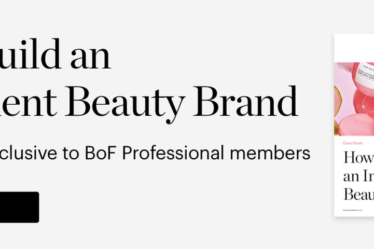
Forget Shein hauls on TikTok. The fast fashion giant has its own purchases to show off — acquisitions of competitors.
Earlier this week, Shein announced it had acquired UK-based Missguided from Frasers Group. The deal includes the intellectual property of Missguided, and will result in a joint venture between Shein and Missguided founder Nitin Passi that will licence the brand.
“The joint venture we have entered ushers in a new format of partnerships for Shein,” Shein executive chairman Donald Tang said in a statement Monday. “Shein aims to reignite the Missguided brand, capitalising on its unique brand personality, and fuelling its global growth through Shein’s on-demand production model, unparalleled e-commerce expertise and global reach.”
The move marks Shein’s second major acquisition this year, following its August agreement with the owner of Forever 21, Sparc Group, to swap equity in the two brands. Shein would gain a one-third interest in Sparc Group in exchange for a minority stake in its business for Sparc Group.
Last month, Shein held its first shop-in-shop pop-up in a Forever 21 store inside an Ontario mall, attracting enough shoppers to form a line outside before it opened.
Though the Forever 21 and Missguided brands are far from their respective heydays, even in their current state they provide Shein access to new markets and distribution channels.
“It took Shein a long time to become a household name,” said Brian Ehrig, partner in the consumer practice at consulting firm Kearney. “But at their scale now, they can’t really afford to wait for that kind of drip-pace growth anymore. They’ve got to be doing [major] deals to move the needle.”
If Shein’s growing so quickly on its own, why did it need to buy Missguided and Forever 21?
A smart acquisition provides the buyer with access to new products, new consumers, or both. For Shein, the emphasis is on the latter.
The Singapore-based retailer is eyeing an initial public offering, according to media reports. In addition to regulatory hurdles, Shein must make the case to prospective investors that it has a plan to grow after it’s gone public. With $22.7 billion in sales last year and a recent valuation of $66 billion – nearly the market capitalisation of Uniqlo owner Fast Retailing – gaining further market share on its own will be challenging, industry observers say. It may be easier to acquire those shoppers instead.
“[Missguided and Forever 21] come with their unique set of loyal consumers and established market presence,” said Neri Karra Sillaman, brand consultant and professor of entrepreneurship strategy at Oxford University. “By integrating them under the Shein umbrella, the company is positioning itself to cater to an even broader demographic.”
Missguided would open up the UK market, where Shein hasn’t penetrated as deeply as it has in the US. Shein’s stake in Sparc Group grants it access to hundreds of brick-and-mortar stores owned by fellow Sparc partner Simon Property Group — in theory, not only Forever 21′s 500 or so locations, but also that of the other brands in Sparc’s portfolio, including Aéropostale, Brooks Brothers and Lucky Brand.
While Shein has experimented with retail in the form of pop-ups around the world, it has yet to open a permanent location anywhere. Now, it has the chance to reach physical shoppers via Forever 21 shop-in-shops. Forever 21 stores could also serve as a return destination for Shein’s online shoppers, the company said.
How are these deals structured?
Shein hasn’t disclosed financial terms for either acquisition. However, analysts say neither deal represents a major investment for the company.
Frasers Group bought Missguided out of administration for £20 million ($24.3 million) in June; Forever 21 was also sold in bankruptcy, for $81 million in 2020, when its three new owners formed Sparc Group: Authentic Brands Group, Simon Property Group and Brookfield Property Partners.
With its latest acquisition, Shein will be able to distribute its products under both its own label as well as the Missguided name to an international audience. Missguided will now be manufactured by Shein and sold on its website, the companies said.
Frasers will retain Missguided’s real estate assets and employees, which will be integrated into its greater fashion division, but the company said the deal opens up the possibility of additional collaborations with Shein across its brand portfolio, which includes Sports Direct, House of Fraser and Flannels.
As part-owner of Sparc Group, Shein will be able to bring its manufacturing and operational finesse to not only Forever 21 but other brands in the portfolio. Together, new partners plan to utilise “their complementary platforms and expertise to accelerate product innovation, explore new business strategies, enhance customer experiences, and grow their presence in the marketplace,” the companies said in August, when the deal was announced.
Last week, Shein announced the first initiative to come out of the Sparc Group acquisition: a co-branded Forever 21 x Shein line designed and manufactured by Shein, to be sold on Shein.com.
What are the challenges ahead?
While Missguided and Forever 21 will likely help Shein’s bottom line, success is not guaranteed. Both retailers are well past their prime and have struggled for years to stay relevant.
“On a logistical standpoint, Shein can reinvigorate these brands just by streamlining operations and bringing its platform to them,” said Jessica Ramirez, retail analyst at Jane Hali & Associates. “My concern is, Forever 21 and Missguided, as much of a following as they used to have, that their core consumer has grown up and moved on.”
Shein doesn’t necessarily need to revive the faded Missguided and Forever 21 brands, as long as it can sell its own products on their platforms. Though if anyone can breathe new life into these stale names, it just might be Shein, said Karra Sillaman.
“We can’t ignore Shein’s expertise in data analytics and its agile supply chain,” she said. “Merging these strengths with the operations of Forever 21 and Missguided could be transformative.”



